第8章
Now, mark what he says: 'The vessel had no protection, but the Chinese do not know this. For God's sake do not whisper it to them.' (Hear). He persevered, too, for he said in effect: We know the Chinese have not been guilty of any violation of treaty, but we will not tell them so; we will insist upon reparation and a return of the men they have seized in a particular form. If the men were not returned in the form, what was to be the remedy?
Why, to seize a junk-a war junk. If that was not sufficient, seize more until we compelled them to submit, although we knew they had the right on their side and we had no justice on ours (Hear) ... Was there ever conduct more abominable, more flagrant, in which -- I will not say more fraudulent, but what is equal to fraud in our country -- more false pretence has been put forward by a public man in the service of the British Government ? (Hear)... It is extraordinary that Sir J. Bowring should think he had the power of declaring war. I can understand a man in such a position having necessarily a power of carrying on defensive operations, but to carry on offensive operations upon such a ground -- upon such a pretence -- is one of the most extraordinary proceedings to be found in the history of the world... It is quite clear from the papers laid on the table yesterday that from the first moment at which Sir J. Bowring was appointed to the station he now fills, his ambition was to procure what his predecessors had completely failed to effect -- namely an entry within the walls of Canton ... bent only upon carrying this object of gaining admission within the walls of Canton into execution, (he) has, for no necessary purpose whatever, plunged the country into war; and what is the result? Property, to the large amount Of $1,500,000, belonging to British subjects, is now impounded in the city of Canton, and in addition to that our factories are burned to the ground, and all this is only owing to the mischievous policy of one of the most mischievous of men. -- But man, proud man, Drest in a little brief authority, Most ignorant of what he's most assured, This glassy essence, like an angry ape, Plays such fantastic tricks before high heaven As make the angels weep."And lastly, Lord Grey:
"If your Lordships, will refer to the papers, you will find that when Sir John Bowring applied for an interview with Commissioner Yeh, the Commissioner was ready to meet him, but he appointed for that purpose the house of the merchant Howqua, without the city...
Sir John Bowring's dignity would not allow him to go anywhere but to the official residence of the Commissioner ... I expect, if no other result, at least the good result from the adoption of the resolution -- the instant recall of Sir J. Bowring."Sir J. Bowring met with similar treatment at the hands of the Commons, and Mr. Cobden even opened his speech with a solemn repudiation of his "friend of twenty years' standing." The literal quotations from the speeches of Lords Derby, Lyndhurst and Grey prove that, to parry the attack, Lord Palmerston's Administration had only to drop Sir J.
Bowring instead of identifying itself with that "distinguished humanitarian." That it owed this facility of escape neither to the indulgence nor the tactics of his adversaries, but exclusively to the papers laid before Parliament, will become evident from the slightest glance at the papers themselves as well as the debates founded upon them.
Can there remain any doubt as to Sir J. Bowring's CC monomania " with respect to his entrance into Canton? It is not proved that that individual, as the London Times says, "has taken a course entirely out of his own head, without either advice from his superiors at home or any reference to their politics?" Why, then, should Lord Palmerston, at a moment when his Government is tottering, when his way is beset with difficulties of all sorts -- financial difficulties, Persian war difficulties, secret-treaty difficulties, electoral reform difficulties, coalition difficulties -- when he is conscious that the eyes of the House are " upon him more earnestly but less admiringly than ever before," why should he single out just that moment to exhibit, for the first time in his political life, an unflinching fidelity to another man -- and to a subaltern, too -- at the hazard of not only impairing still more his own position, but of completely breaking it up? Why should he push his newfangled enthusiasm to such a point as to offer himself as the expiatory sacrifice for the sins of a Dr. Bowring? Of course no man in his senses thinks the noble Viscount capable of any such romantic aberrations. The line of policy he has followed up in this Chinese difficulty affords conclusive evidence of the defective character of the papers he has laid before Parliament.
Apart from published papers there must exist secret papers and secret instructions which would go far to show that if Dr. Bowring was possessed of the "monomania" of entering into Canton, there stood behind him the cool-headed chief of Whitehall working upon his monomania and driving it, for purposes of his own, from the state of latent warmth into that of consuming fire.
DEFEAT OF THE PALMERSTON MINISTRY
New York Daily Tribune March 25, 1857
by KARL MARX
After having raged for four nights, the Chinese debates subsided at last in a vote of censure passed by the House of Commons on the Palmerston Ministry. Palmerston retorts to the censure by a "penal dissolution." He punishes the Commons by sending them home.